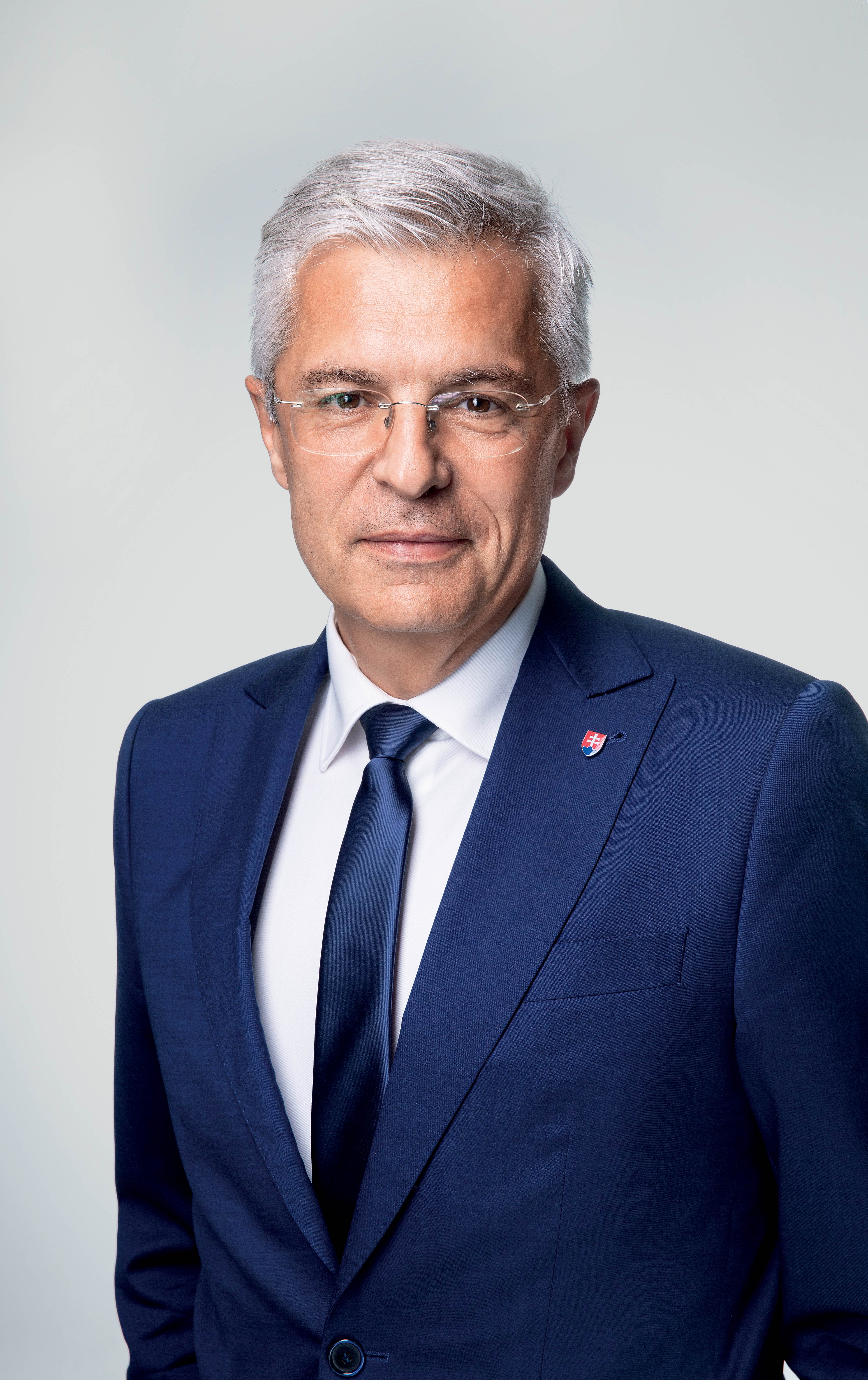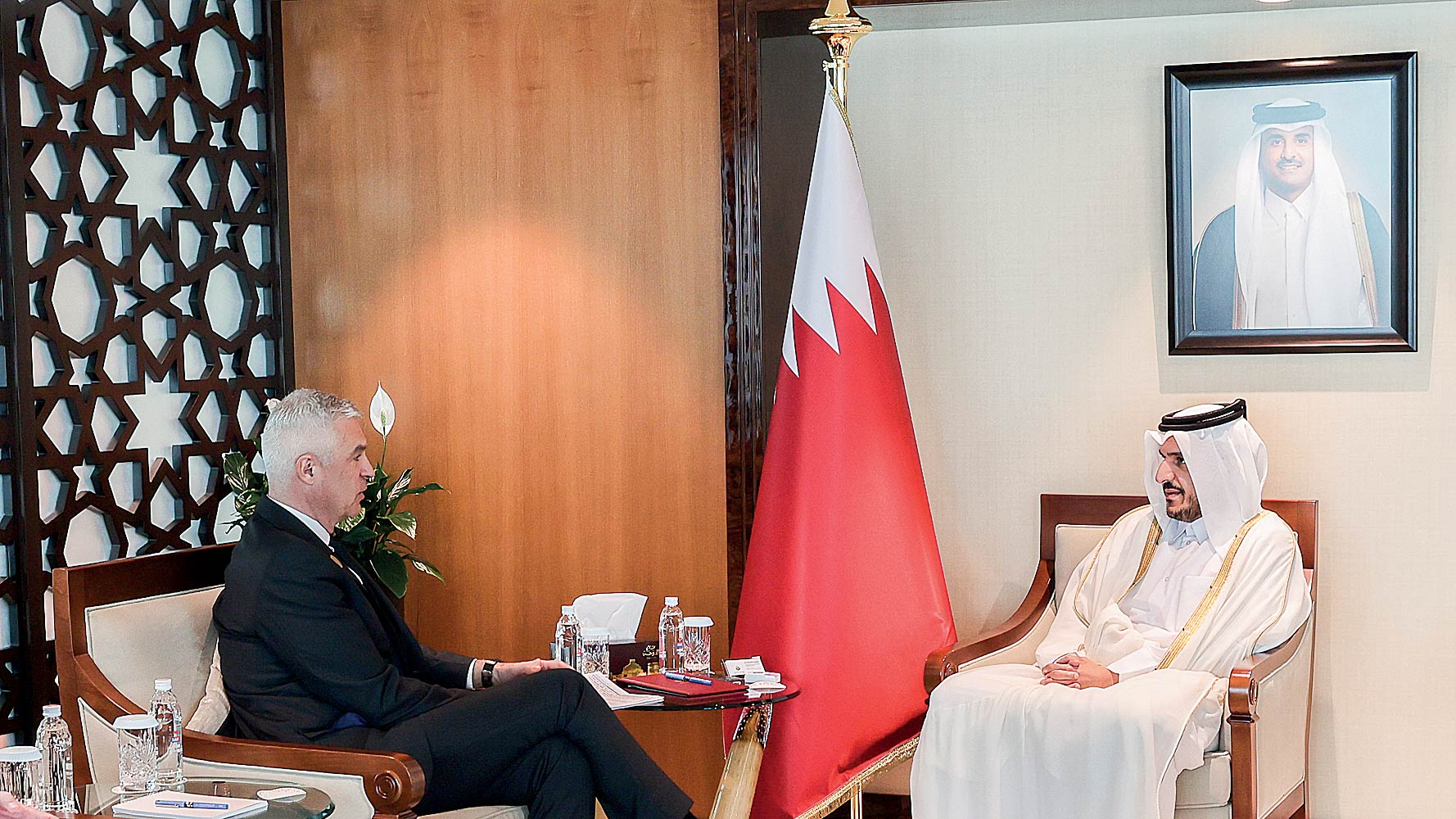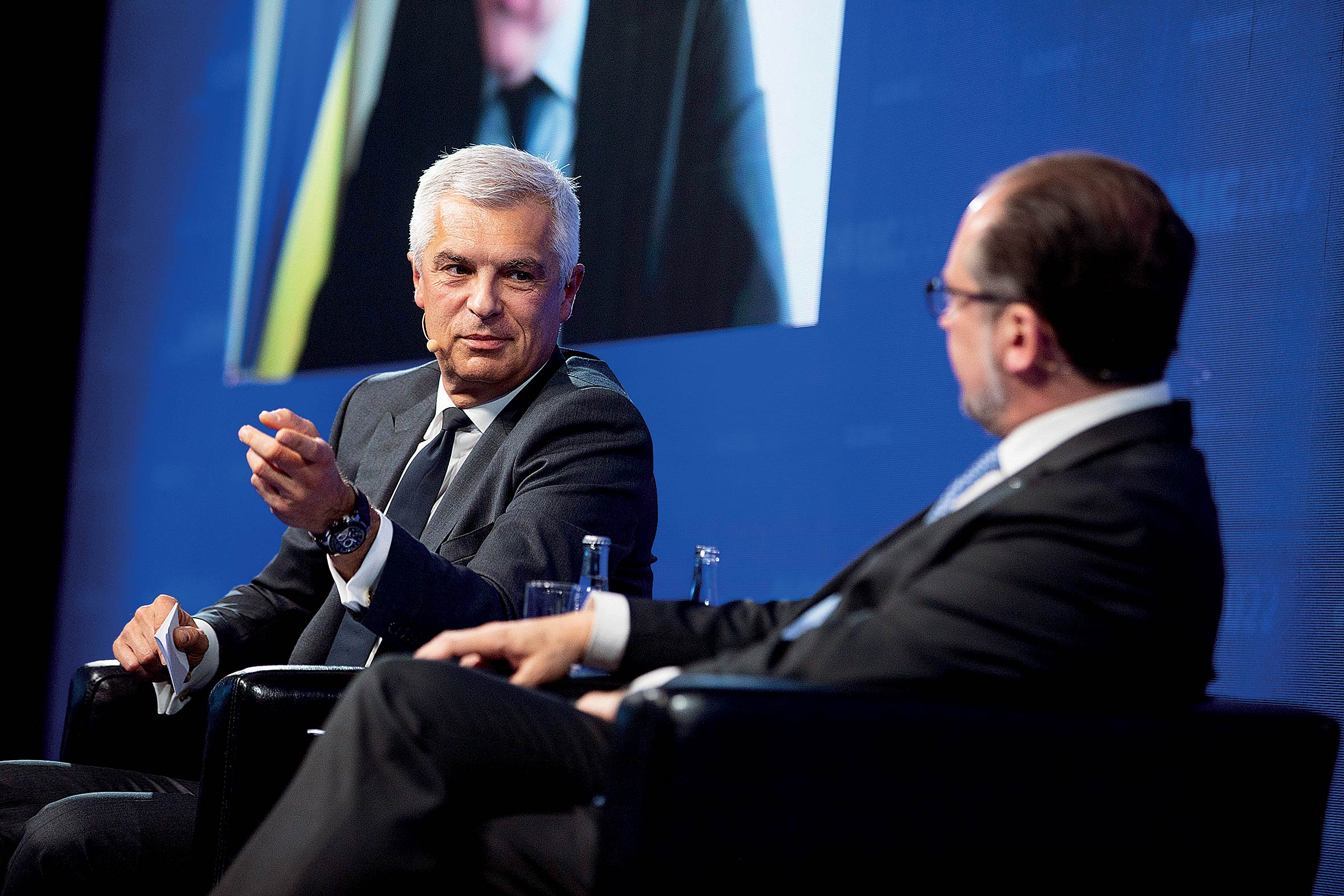The Qatari capital hosted a key international conference focused on global topics, the Doha Forum 2022, at the end of March. Slovak Minister of Foreign Affairs, Ivan Korčok, was one of the speakers.
The theme of this year's conference was “Transforming for a New Era,” and it focused on these four topics: 1. Geopolitical alliances and international relations; 2. Financial system and economic development; 3. Military, cyber, and food security; and 4. Climate change and sustainability. Which topics did you speak on?
I am honored to have been able to attend this prestigious event, and I am certain that Slovakia has become a permanent part of it. I participated in a debate on the spheres of influence in a turbulent era, and together with other prominent panelists – former Pakistani Minister of Foreign Affairs, Hina Rabbani Khar, Chairman of the World Economic Forum, Børge Brende, and Director of the European Council on Foreign Relations, Mark Leonard – we discussed the shifting dynamics determining power and control in modern times. The events in Ukraine were the key topic of our discussion, and I went into detail on the impact that the Russian aggression against Ukraine has had on the political, security, and humanitarian aspects of life in Slovakia. I also provided information about the measures the Slovak Government has taken to help Ukrainian refugees.
What part of the conference did you find most impactful and why?
I found the opening speech of the Emir of Qatar, Sheikh Tamim bin Hamad Al Thani, interesting as he pointed out the need to find solutions to the issues of global poverty and social justice, while also stating that the world is in a very complicated situation that requires a revision, which is something I wholeheartedly agree with. I also concur with Emir Al Thani's statement that military solutions have taken the forefront as opposed to political and diplomatic measures when it comes to politics and security.
You met with Qatari Minister of Foreign Affairs, Mohammed Bin Abdulrahman Al Thani, and Minister of Industry and Trade, Mohammed bin Hamad Bin Qassim Al-Abdullah Al Thani, in Doha. You later stated on Twitter that the key topic of these negotiations was to look for potential liquefied natural gas supply options from the Persian Gulf countries, especially in regard to Slovakia's attempts to become independent on Russian gas. What did you find out? Have there been any developments in these negotiations since then?
I cannot, nor do I want to, go into detail about our negotiations with Qatar, but I can confirm that we see Qatar as one of Slovakia's potential LNG suppliers in a mid-term timeframe. LNG purchases are and will remain an important topic, although it is not the only one we have discussed with our Qatari partners.
What is the state of relations between Slovakia and Qatar, as well as potentially other Middle Eastern countries that could supply Slovakia with natural gas and oil?
Our relations are by no means limited to the energy industry, even though the events in Ukraine have forced us to actively seek out alternative sources of oil and gas as we aim to reduce the one-sided dependence we have had on the Russian Federation's energy up until now. Qatar is certainly one of our priority partners in this regard. I have previously met with Prime Minister and Minister of Foreign Affairs, Mohammed bin Abdulrahman Al Thani, in September last year in New York at the UN General Assembly. Our negotiations at the Doha Forum only confirmed that both parties are interested in collaborating, I see the biggest potential in trade and investing. We signed a Memorandum of Understanding on establishing a mechanism of political consultation between our ministries of foreign affairs, which entails regular dialog in areas of bilateral relations, investments and trade, cultural cooperation, education and technologies, international and regional topics, global security matters of mutual interest, and implementation of bilateral agreements. I am convinced that we will take swift, qualitative steps forward through joint efforts. With this goal in mind, I would like to organize a visit to Qatar alongside a business delegation in the near future. I would like to add that Qatar is also a key regional partner to the EU. That is why we were happy to see the relations in the Gulf Cooperation Council normalize. Following a six-year hiatus, this allowed for the 26th EU-GCC Ministerial Meeting to take place in Brussels in February this year. I would like to wish Qatar a calm and successful FIFA World Cup 2022, which will sadly take place without the attendance of the Slovak national team.
What is your country's general plan when it comes to decreasing dependence on Russian gas? And is this a plan that is somehow being coordinated with Czechia?
The ways out of being dependent on Russian gas and oil we see are diversification, increased energy effectivity, and mass use of renewable energy sources. It is obvious that, besides the increased use of renewables, it is nuclear energy that is helping us reduce our energy dependence and reach our climate goals. There are multiple connections with Czechia in this regard. Besides our similar views on current topics, such as the use of nuclear or the need for European solidarity when tackling the issue of transitioning to non-Russian energy sources, our energy industries have been intertwined for many years. We want to continue in this collaboration that is beneficial to both parties.
How do you feel about the recent REPowerEU plan presented by the European Commission, which should do away with the Union's energy dependence on Russian natural gas and oil?
We expect that the REPowerEU plan will eliminate EU member states' dependence on Russian energy sources. Doing away with this dependence will require mutual solidarity, especially in terms of gas, with regard to the possible issues – particularly bottlenecks, such as limited LNG terminal capacity or LNG tanker availability. REPowerEU should facilitate an EU-wide system of solidarity, which would, among other benefits, ensure that there are sufficient gas stores for the winter and also streamline joint purchases and distribution of non-Russian gas all over the continent. We feel that such a system should also take into account the necessary reserves for Ukraine as part of the European energy network.
As for the Slovakian public, I was surprised to see how strong the pro-Russian, anti-Western rhetoric is. What do you think caused this?
This is a multifaceted issue. Some such facets are the long-term influence of pro-Russian propaganda in Slovakia, which started growing exponentially after the annexation of Crimea in 2014, and also partially the lingering romantic ideas of Pan-Slavism, which have been hard to weed out in our region. The anti-American sentiment prevalent in the populist side of Slovak politics also plays a big part – it has been present since the establishment of our republic, creeping over from times of communism, and is currently being used to push through political agendas. For the older generation, it is an optimistic memory bias, while the younger generations have it the other way – they have never lived through a regime that encroaches on their freedoms. The time gap is growing, and 20th-century history is not being taught as diligently as it should be in schools.
Certain gaps in the education system tie into all of the above. Opposition politicians with huge reach on social media are often the biggest spreaders of misinformation. Social media is a beast of its own in this regard, and we all know that the algorithms it employs often favor emotion-inducing and manipulative content. This issue has grown to gargantuan proportions in Slovakia, which is why we brought it to the attention of United States congressmen who wrote an open letter to the CEO of Meta, urging him to look into these matters. In general, propaganda provides those who consume it with simple solutions to complex issues and with “hidden truths” that make people feel special because they think they have uncovered a conspiracy, while posts on unregulated social media reinforce their world views.
It is possible that it is precisely due to the Russian invasion that we are starting to see certain paradigm shifts in our society when it comes to our foreign policy and pro-Russian narratives. According to the latest GLOBSEC Trends 2022 reports, there has been growing support for Western tendencies and NATO membership, while more people see Russia as a threat, and the Russian president has become less popular.
You stated in the media this April that for there to be peace in Ukraine, Russian armies have to leave its territory entirely. Do you really think that Russia will give up Crimea and leave the eastern border regions of Ukraine, the so-called Luhansk and Donetsk People's Republics? What specifically could make it do so?
Any attempts, even indirect ones, to dispute Ukraine's national sovereignty and territorial integrity present many risks. Such attempts may go as far as to spur certain parties to action that could then follow Russia's example and start weighing the benefits of violating key principles of international law. This is quite clearly an existential issue not only for Slovakia, but our region, and Europe as a whole. That is why we have no other option but to stand strong in our stance and oppose any violent border shifts. I am certain that the conditions for reaching an agreement and ending the war have to be decided by Ukraine itself first and foremost.
We are all hoping for a swift end to the brutal and senseless Russian aggression, which has led to the deaths of thousands of people, including civilians, and the total devastation of Ukraine. In this dramatic time, it is our fundamental duty to show solidarity with Ukraine as the victim of aggression that is desperately trying to defend itself (with foreign aid). Today, Ukraine is represented by a political administration that has been elected democratically. The representatives of this administration have been very clear since the beginning of Russia's invasion that they will not cede any part of their territory, making it non-negotiable. And we have no moral right to undermine our neighbors in this regard or question their position. It is vital that we force Russia to end the war and show elementary respect for the existence of Ukraine and its territorial integrity. The western world needs to continue using all the tools it has at its disposal to make Russia change its policy towards Ukraine.

CV BOX
Ivan Korčok (born April 4, 1964, in Banská Bystrica) is the Slovak Minister of Foreign Affairs.
From 1983 to 1987, he studied economics at the University of Economics in Bratislava, and later, between 1991 and 1995, he earned his postgraduate degree in international relations at the Komenský University in Bratislava.
He worked as a diplomat and held different positions at the Slovak Ministry of Foreign Affairs between 1992 and 2005 (chargé d'affaires in Switzerland, representative of the Slovak mission to the UN, managing director of the Department of International Organizations and Security Policy of the MoFA, etc.).
Korčok was an ambassador to Germany between 2005 and 2009, and subsequently a permanent representative of Slovakia to the EU from 2009 to 2015. Between 2015 and 2017, he was assigned as an agent of the government for issues on Slovakia's EU Council presidency. In August 2018, he was appointed as the Slovak ambassador to the United States.
He has been the Slovak Minister of Foreign Affairs since April 2020.
He is married and has two sons with his wife Sonia – Viktor and Marek.

With Qatari Minister of Foreign Affairs, Mohammed bin Abdulrahman Al Thani.
Doha Forum
Is a global communication platform allowing prominent politicians, diplomats, and representatives of large international organizations to discuss current world issues. It takes place every year in spring in the capital of Qatar, Doha.
The creed of the conference is “Diplomacy, Dialogue, Diversity,” which conveys the event's key idea – that global issues cannot be tackled locally in an effective manner but need to be discussed on a global scale where all countries can come to an agreement, no matter how diverse their stance. This year was the 22nd edition of the conference and it focused on these four topics: 1. Geopolitical alliances and international relations; 2. Financial system and economic development; 3. Military, cyber, and food security, and 4. Climate change and sustainability.

At this year's GLOBSEC conference in Bratislava.
Energy mix
Slovakia is poised for an eventual halting of all imports of Russian natural gas. It has a very favorable energy mix – the make-up of different sources used to produce energy. Roughly two-thirds of Slovakia's energy are produced in nuclear and hydroelectric plants. Coal takes third with roughly 14% and only then comes the “troublesome” Russian natural gas (12%). Slovakia plans to replace it with gas from other countries as well as by increasing the energy it produces from renewable sources (solar, wind). In fact, it is one of the country's main goals on its journey to carbon neutrality.